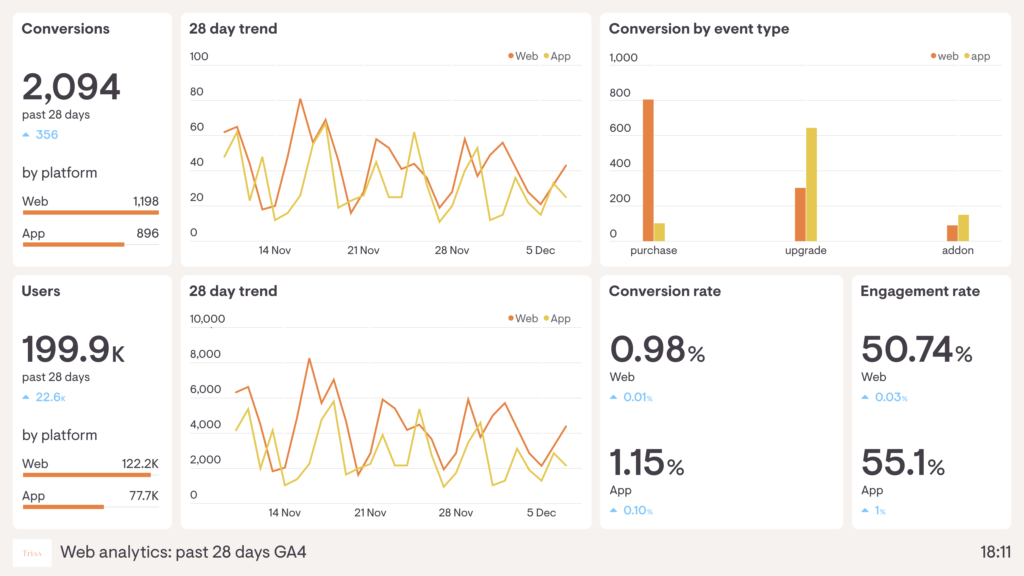Understanding How Online Ads Follow You
When you notice ads that seem to “follow” you around the internet, it’s not a coincidence. Advertisers use cookies to track your online behavior and show you relevant ads. Here’s how it works:
- Advertisers use cookies: These are bits of data stored on your browser that keep track of your online activity.
- Retargeting: When you visit a website, a cookie is placed on your browser. This cookie allows advertisers to show you ads related to that website as you browse other sites.
- Personalized Ads: Advertisers use this information to create personalized ads that are more likely to catch your attention.
Understanding how online ads follow you can help you utilize this strategy for your own digital marketing efforts.

The Technology Behind Retargeting Ads
Retargeting ads use cookies to track your online behavior. When you visit a website, a cookie is set in your browser. This cookie allows advertisers to show you ads for products you’ve viewed as you browse other websites. Retargeting ads are effective because they remind you of products you’ve shown interest in, increasing the likelihood of you making a purchase.
Benefits of Utilizing Retargeting in Digital Marketing
Retargeting in digital marketing can boost your conversion rates by reminding potential customers about your products or services. By showing ads to people who have already visited your website or interacted with your brand, you stay top of mind and encourage them to return and make a purchase. This strategy can lead to higher engagement and sales, as you target individuals who have already shown interest in what you offer. Retargeting is a powerful tool to capture lost leads and guide them back to your business’s doorstep.
How Retargeting Ads Can Boost Conversions
Retargeting ads can boost conversions by reminding potential customers about your products or services after they have visited your website. These ads follow users around the web, serving as a subtle reminder of your brand. This tactic is effective because it keeps your products fresh in their minds, increasing the likelihood that they will return to make a purchase.
Targeting Specific Audiences with Retargeting Ads
Retargeting ads are a powerful tool in digital marketing that allows businesses to show ads to people who have previously visited their website. This strategy helps to keep your brand top of mind and encourages potential customers to return. With retargeting ads, you can target specific audiences based on their previous interactions with your website, such as the pages they visited or the products they viewed. By using this method, you can increase the chances of converting these potential customers into actual buyers, leading to a higher return on investment for your marketing efforts.
Creating Effective Retargeting Campaigns
To create effective retargeting campaigns, you need to understand the behavior of online users. When someone visits your website and leaves without making a purchase, retargeting allows you to show them ads as they browse other sites, reminding them of your brand. This gentle nudge can bring them back to your website to complete their purchase. By using retargeting, you can stay top-of-mind with potential customers and increase the likelihood of conversion.
Best Practices for Implementing Retargeting Strategies
To make the most of retargeting strategies, ensure your ads are relevant and engaging. Tailor your message based on the specific actions of your audience. Use frequency capping to avoid bombarding users with ads. Segment your audience and create personalized ads for each group. Test different creatives and calls-to-action to optimize performance. Implement A/B testing to refine your campaigns and maximize effectiveness.
Choosing the Right Platforms for Retargeting
When it comes to retargeting, it’s essential to choose the right platforms for your ads to follow potential customers effectively. Two popular platforms for retargeting are Google Ads and Facebook Ads. Here’s a quick breakdown to help you decide:
> Google Ads:
- Reach users who have already engaged with your website.
- Display ads on Google’s vast network, including websites and search results.
- Track user behavior and tailor ads based on their interests.
> Facebook Ads:
- Target users based on their behavior on Facebook and Instagram.
- Leverage advanced targeting options like demographic, interests, and behaviors.
- Benefit from the visual nature of these platforms to create engaging ad content.
Both platforms offer unique advantages, so consider your target audience and advertising goals when choosing where to focus your retargeting efforts.
Measuring Success: Analytics and Key Performance Indicators
To measure the success of your online ads, you need to look at analytics and key performance indicators (KPIs). Here are some things to consider:
- Analytics help you track the performance of your ads: By analyzing data, you can see how well your ads are performing and where you may need to make changes.
- Key Performance Indicators are metrics used to measure ad effectiveness: KPIs such as click-through rates, conversion rates, and return on ad spend can give you valuable insights into the success of your ads.
- Regular monitoring of analytics and KPIs is crucial: Keep a close eye on these metrics to understand what is working and what isn’t, and make adjustments accordingly.
- Use the data to inform your future digital marketing efforts: By analyzing the results of your ads, you can optimize your strategies for better performance in future campaigns.
Additional Questions Others May Not Be Posing:
How can I prevent online ads from following me around the web if I don’t want to be tracked? To prevent online ads from following you around the web, you can adjust your browser settings to block or limit cookies, clear your browsing history and cache regularly, and use a virtual private network (VPN) to mask your IP address. Additionally, some web browsers offer built-in tracking prevention features that can help minimize the impact of retargeting ads.
What are the potential privacy concerns with advertisers using cookies to track my online behavior? The use of cookies to track online behavior raises several privacy concerns. Advertisers can collect vast amounts of personal data, including browsing history, search queries, and purchasing habits, without the user’s explicit consent. This data can be used to create detailed profiles of individuals, which may be shared with third parties or used for targeted advertising without the user’s knowledge or control. Privacy advocates argue that this practice infringes on individual privacy rights and can lead to potential misuse of personal information.
Are there any regulations or laws that govern how advertisers can use retargeting ads and track users online? There are some regulations and laws that govern the use of retargeting ads and online tracking. In the European Union, the General Data Protection Regulation (GDPR) requires companies to obtain explicit consent from users before collecting and using their personal data for targeted advertising. In the United States, the Federal Trade Commission (FTC) has issued guidelines for online advertising and privacy, but there is no comprehensive federal law governing these practices. Some states, such as California, have passed their own privacy laws that impose restrictions on the collection and use of personal data by advertisers.
Leveraging Retargeting for Your Digital Marketing Strategy
Retargeting is a powerful tool in digital marketing that allows advertisers to reach potential customers who have previously visited their website. By using cookies, which are small pieces of data stored on a user’s browser, advertisers can show targeted ads to these visitors as they browse other websites. This strategy is effective because it keeps your brand top of mind and encourages visitors to return and make a purchase. To leverage retargeting for your digital marketing strategy, consider these key points:
- Retargeting helps you re-engage with visitors who have shown interest in your products or services.
- It can lead to higher conversion rates as it targets users who are already familiar with your brand.
- Customizing your retargeting campaigns based on user behavior can further boost engagement.
- Utilize compelling ad creatives and strong calls to action to maximize the effectiveness of your retargeting efforts.
We promise not to retarget you with our cookies, but if you’re interested in how we can help you with your digital marketing efforts, drop us a line!









